If you are wondering what happened to my articles about West Virginia – more will be coming soon – I promise!
Back in August 2019, we flew from Washington DC to Lisbon to start our adventure in Portugal that would include a week or so on the Viking Cruise on the Douro River exploring the port vineyards. We decided to organize the flights ourselves and also arrived in the same hotel that Viking uses two days in advance to allow us to see the best of Lisbon before the cruise took over. I plan to write multiple articles about this trip and so I’m not giving anything away by mentioning now that we extended our visit at the end of the cruise as well and rented a car to meander back through Portugal to catch our return flight. Incidentally, we cruised with Viking for several years, booking new cruises when on a previous one, before we realized that we were missing out on a potential discount. I’ve written a short article about that here if you are interested.
After arriving in the late morning and having a quick rest in our hotel, we first ventured on foot around the center of Lisbon. The hotel – the Tivoli Avenida Liberdade – was pretty centrally located and we first headed for Sao Domingos Church.
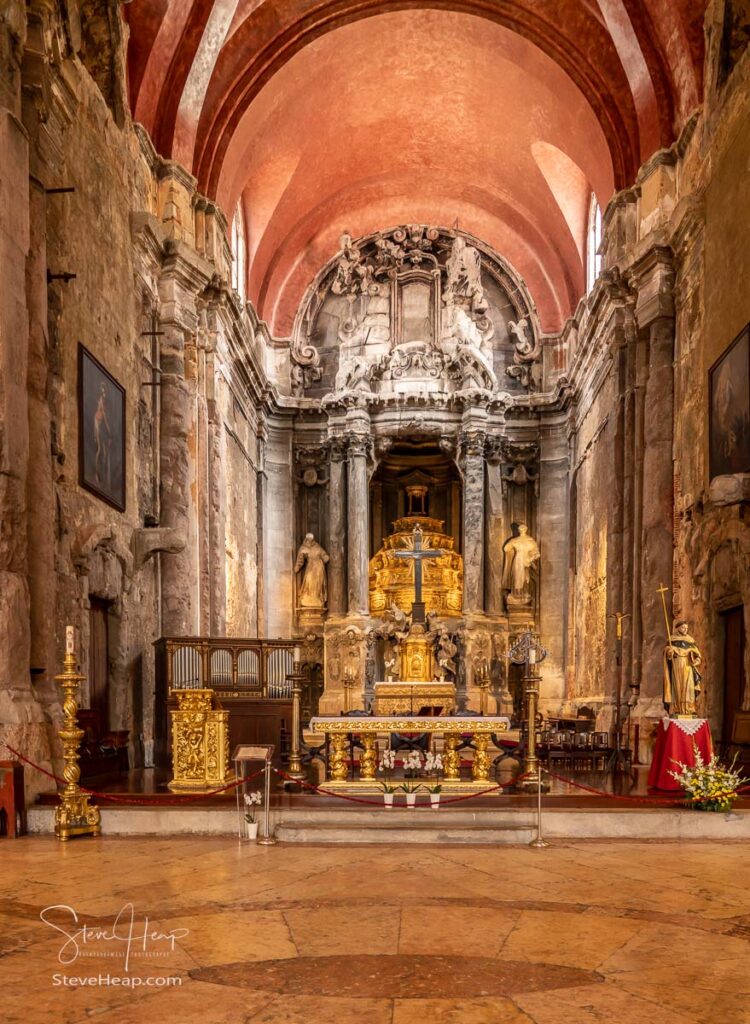
This intriguing church, which is still in use, was almost destroyed by a fire in 1959, but instead of rebuilding it in its original form, or demolishing and starting again, they instead simply used the remaining standing walls and completed the rest on a rust-colored concrete. As you can see, all the original wood in the roof was gone, and so you are left with a very moving scene that really shows the damage that fire can do. You can even still smell the smoke that lingers in the structure of the building. Not one of the most visited churches in Lisbon, but certainly one of the most interesting.
On our stroll back to the hotel, we saw a fine example of the decorative tile work that is on the face of many buildings in Portugal – this one a lovely home with flowers on the balconies:
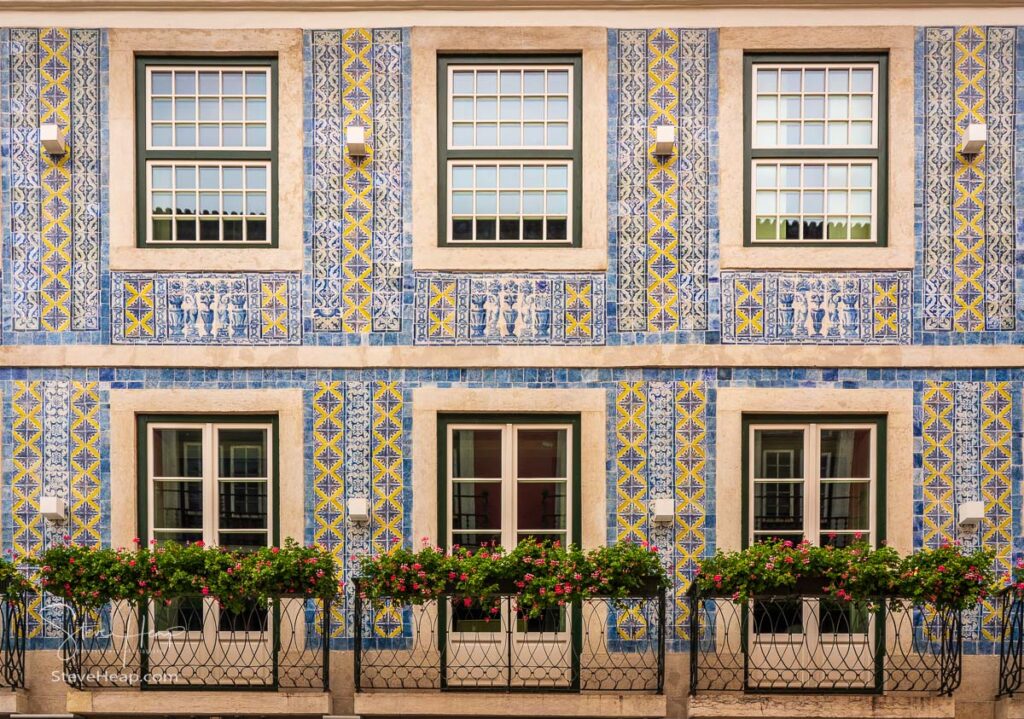
Lisbon is famous for its trams that run along many of the city streets – it also seems to be pretty famous for its graffiti as you can see in this image. This particular one is part of a funicular railway up the hillside called the Ascensor da Gloria and we travelled on it on our next morning after a good sleep. I’m not a fan of this sort of art to be honest!
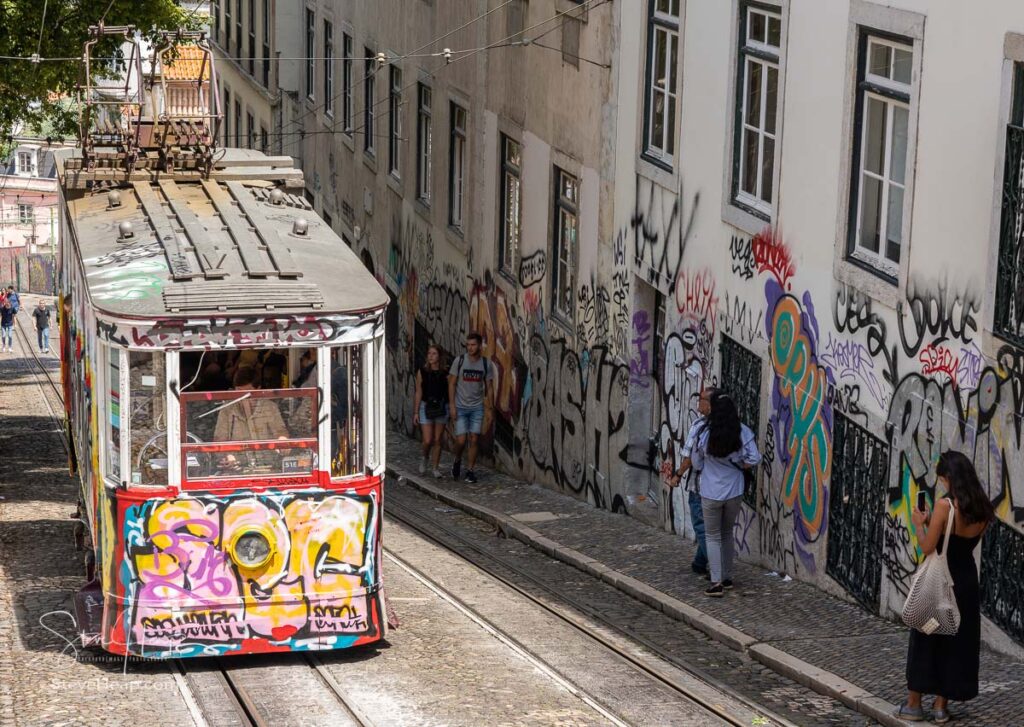
In the Alto Barrio district, we visited a church that more met our expectations – the Sao Roque church. This is the earliest Jesuit church in the Portuguese world, and one of the first Jesuit churches anywhere. It was finished in 1565 and managed to survive the earthquake of 1755 and the decoration has presumably continued to be added over the years. It is truly ornate!
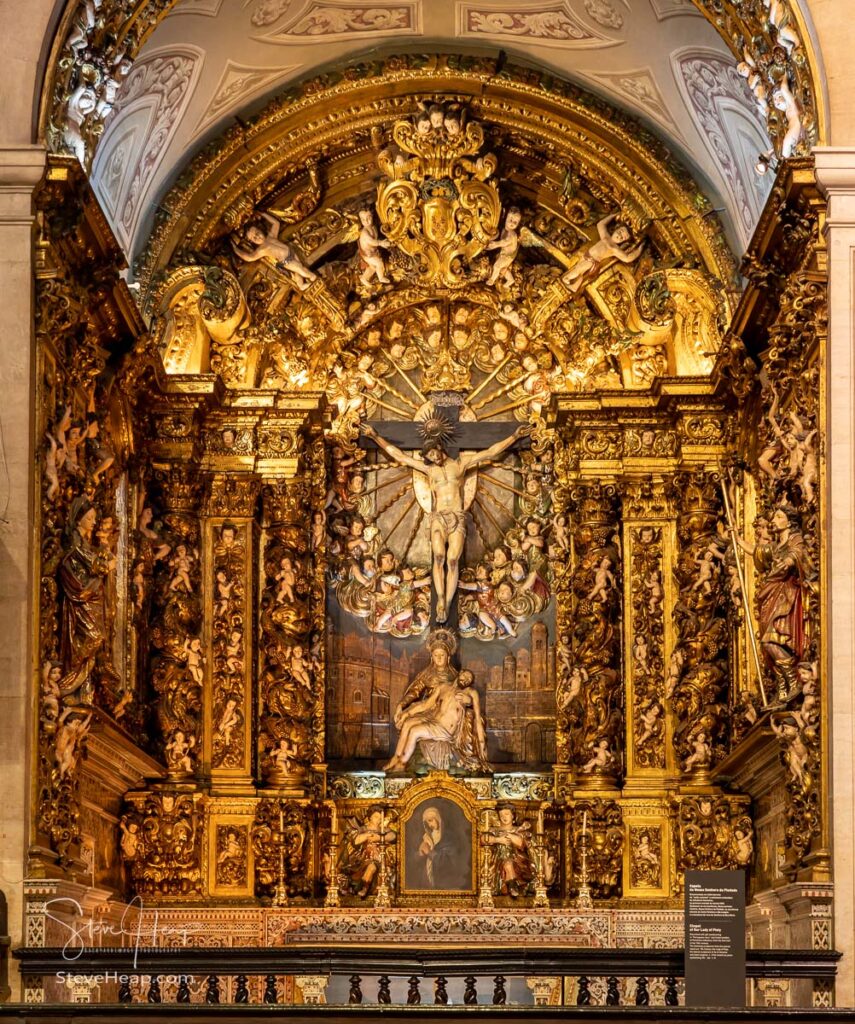
Relatively close by was a church that didn’t survive the earthquake in such good condition. This is the Convent of our Lady of Mount Carmet or the Convent of Carmo, that was first built as a monastery in 1389 and then pretty much destroyed in the 1755 earthquake off the coast near Lisbon. It’s library of over 5000 volumes was totally lost. The church was rebuilt to some extent with the arches being stabilized, but it remains as one of the main illustrations of the power of the earthquake left in Lisbon:
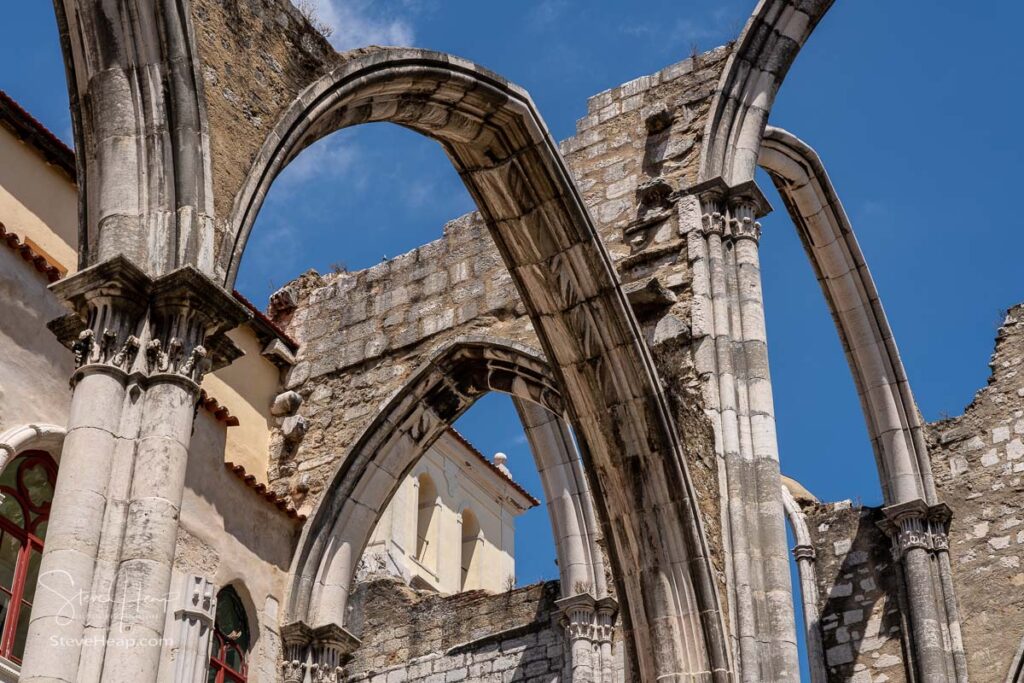
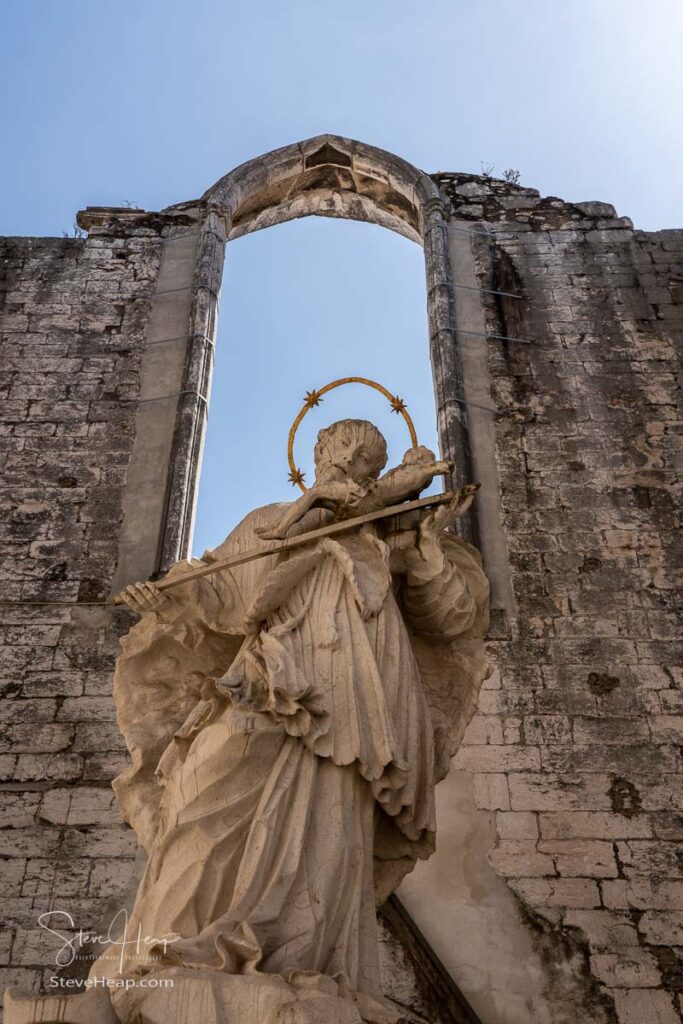
Lisbon has many historical reminders of its past and this statue and column for Marques do Pombal was close to our hotel and now the center of a busy roundabout!
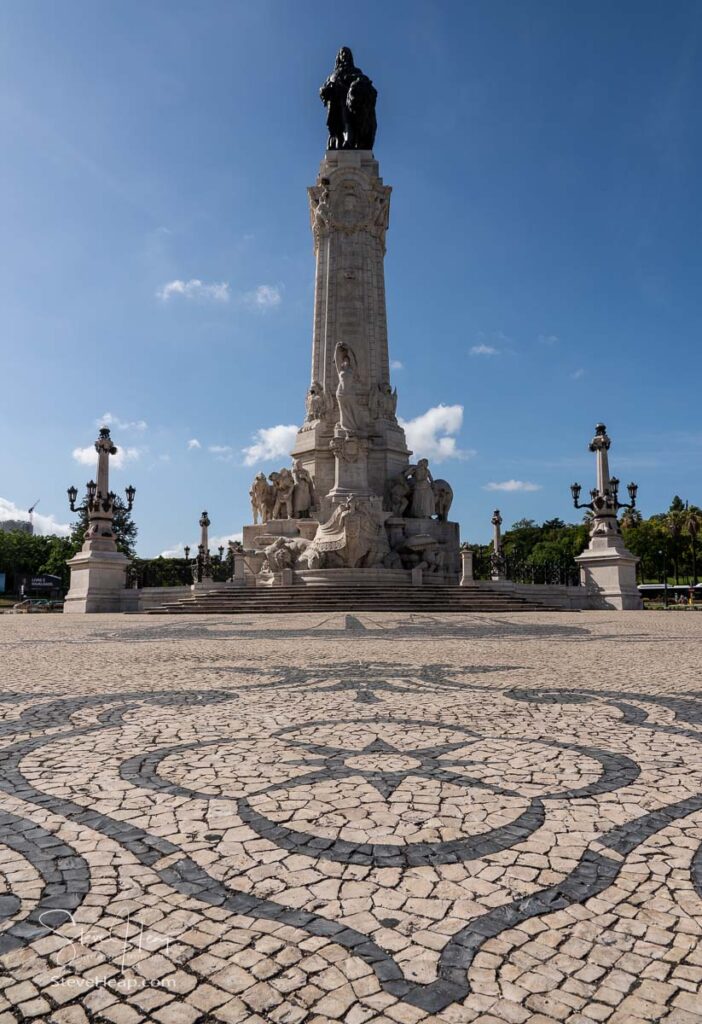
The end of the day was a chance to take a view of the warm light of the setting sun over Lisbon – taken, I think, from the roof of our hotel:
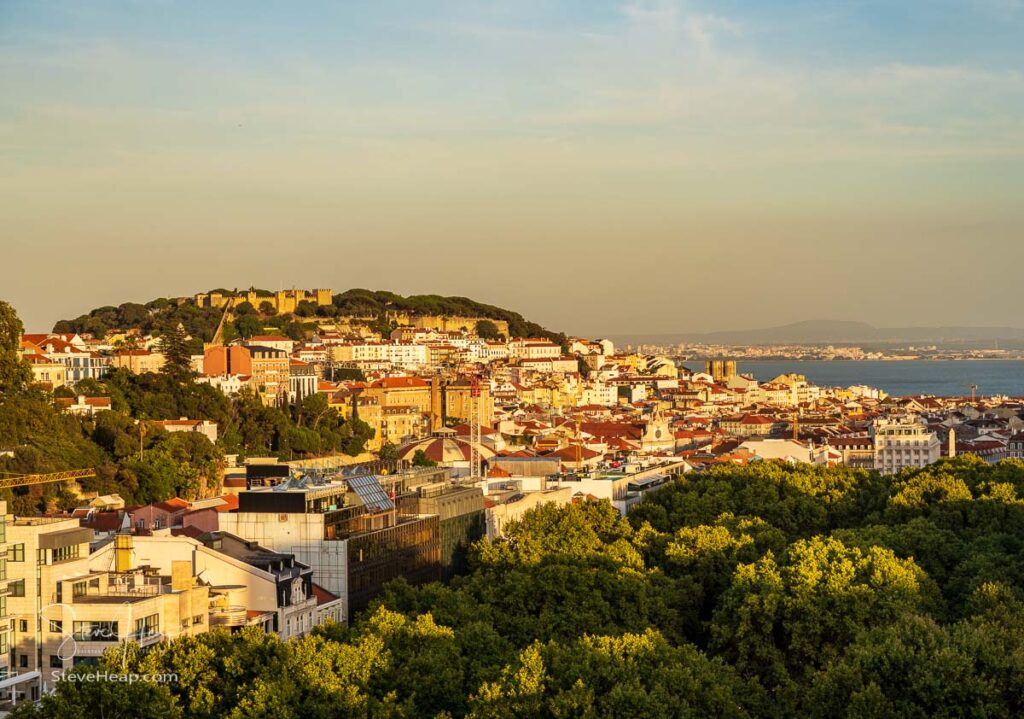
The next morning was the official start of the Viking tours, and we were taken out to Belem to see the famous Tower of Belem:
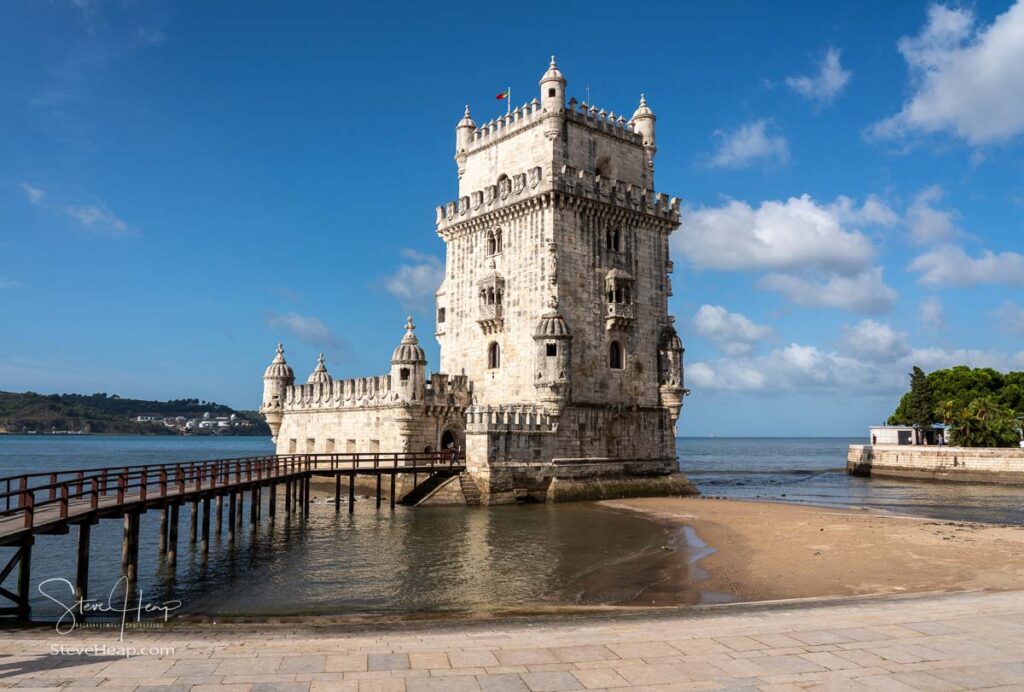
We had plenty of time to wander around and this replica of the sea plane that made the first transatlantic flight to Brazil caught my eye:
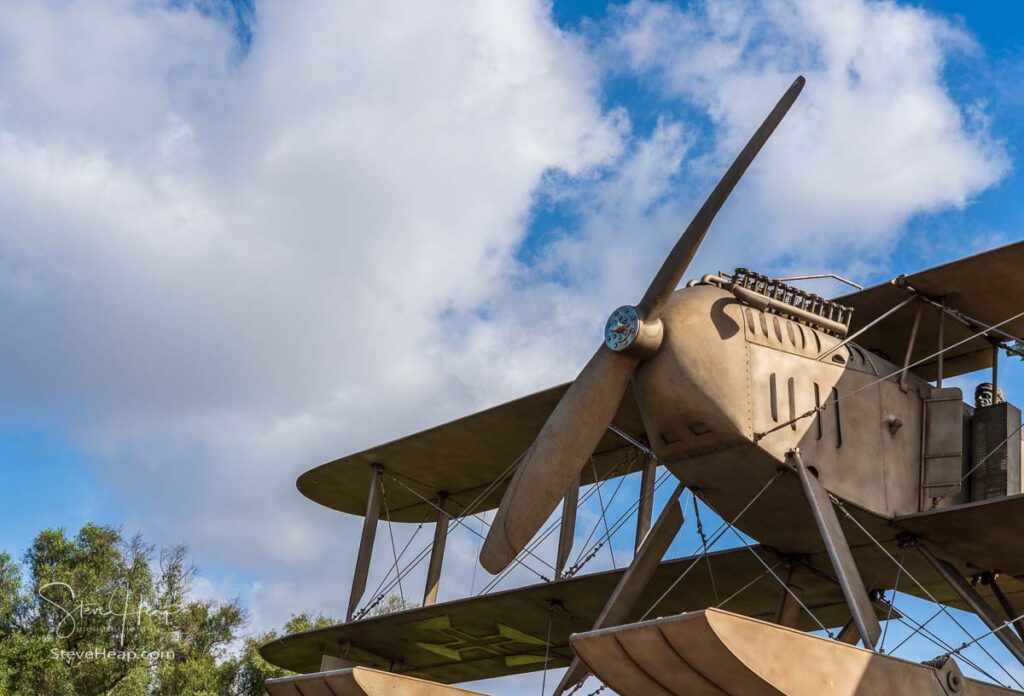
We were then off to visit the magnificent Monastery of Jeronimos and the fantastic stone carvings decorating its exterior.
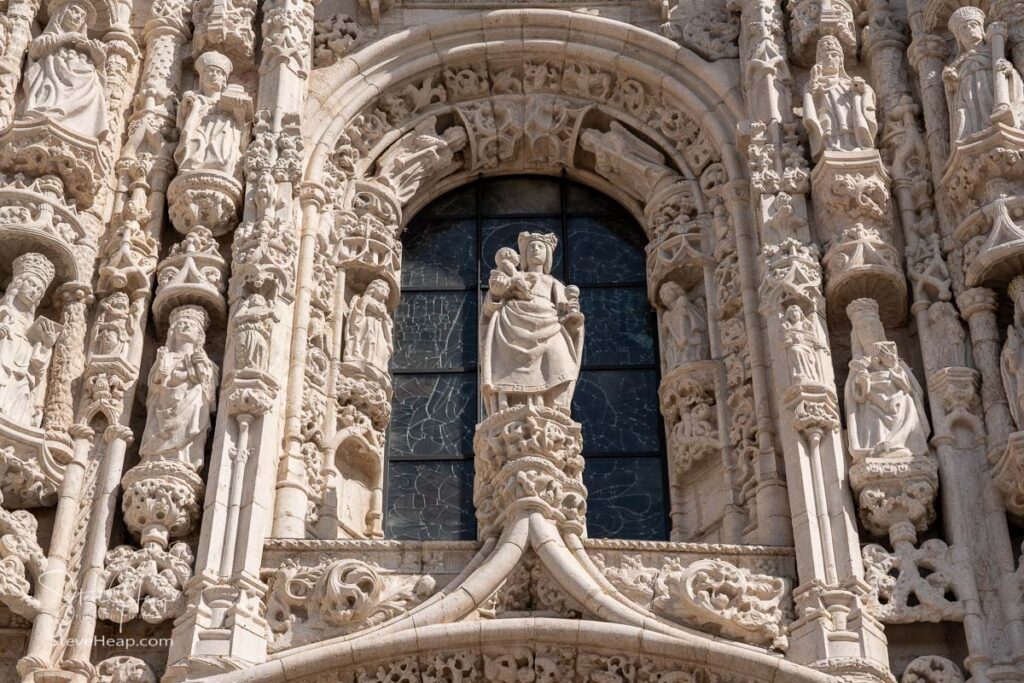
This monastery was started in 1501 and completed almost a hundred years later! It was secularized in 1833 by state decree and transferred to a charitable institution. It is a beautiful place to visit if a little busy with tourists!
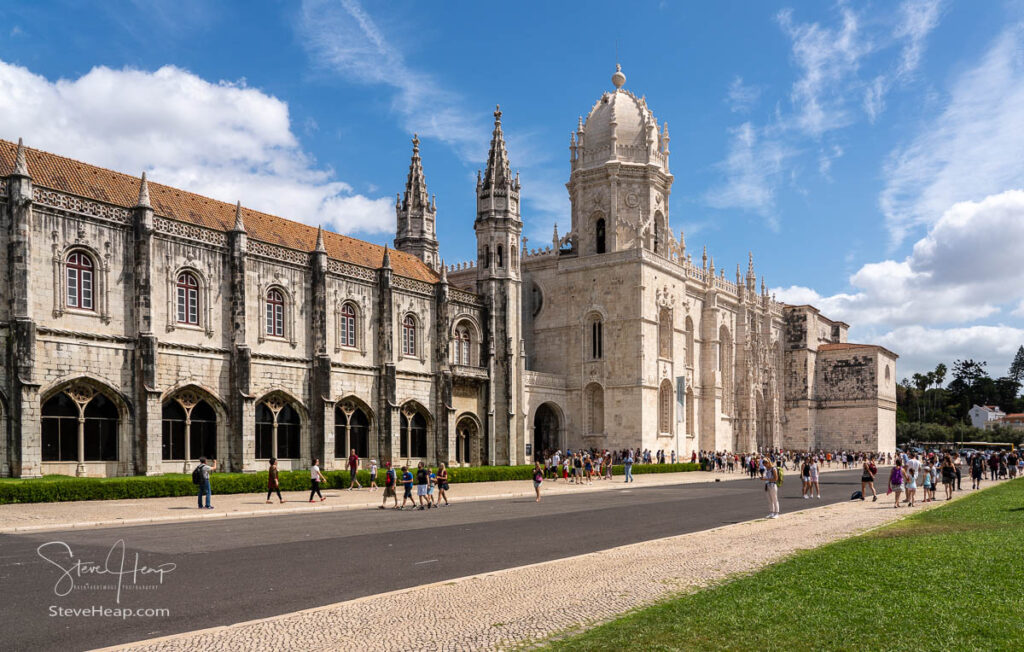
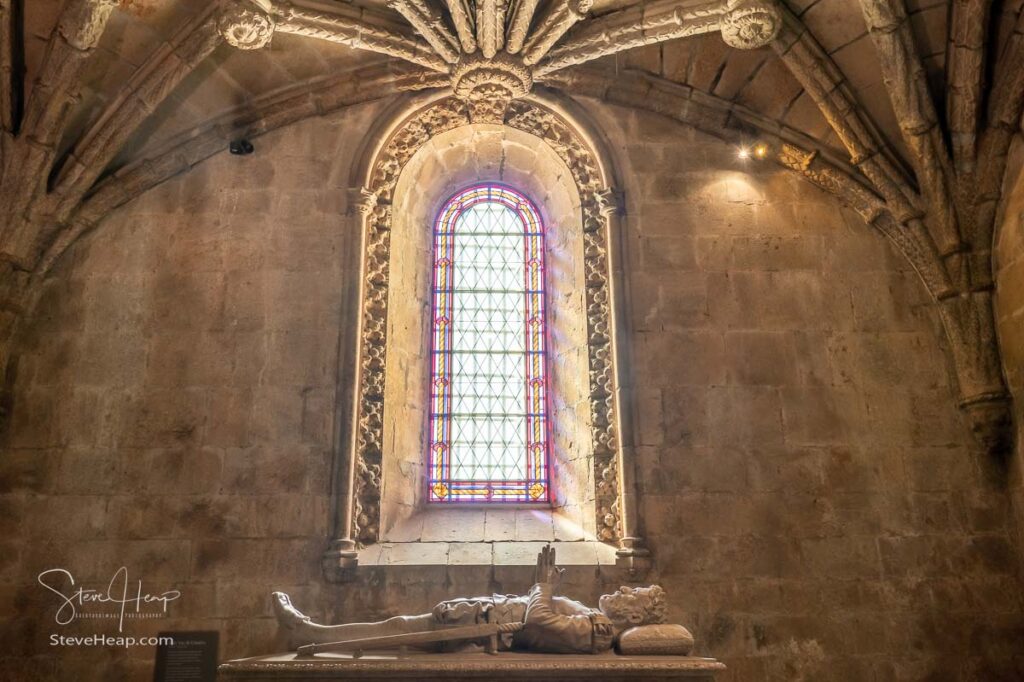
Just across the street on the waterfront is an equally dramatic sight – the monument of the Discoveries. This was conceived in 1939 as a somewhat romanticized view of the history of Portuguese explorations, and finally built between 1958 and 1960 partly of cement and rose-colored stone with limestone statues and carvings.:
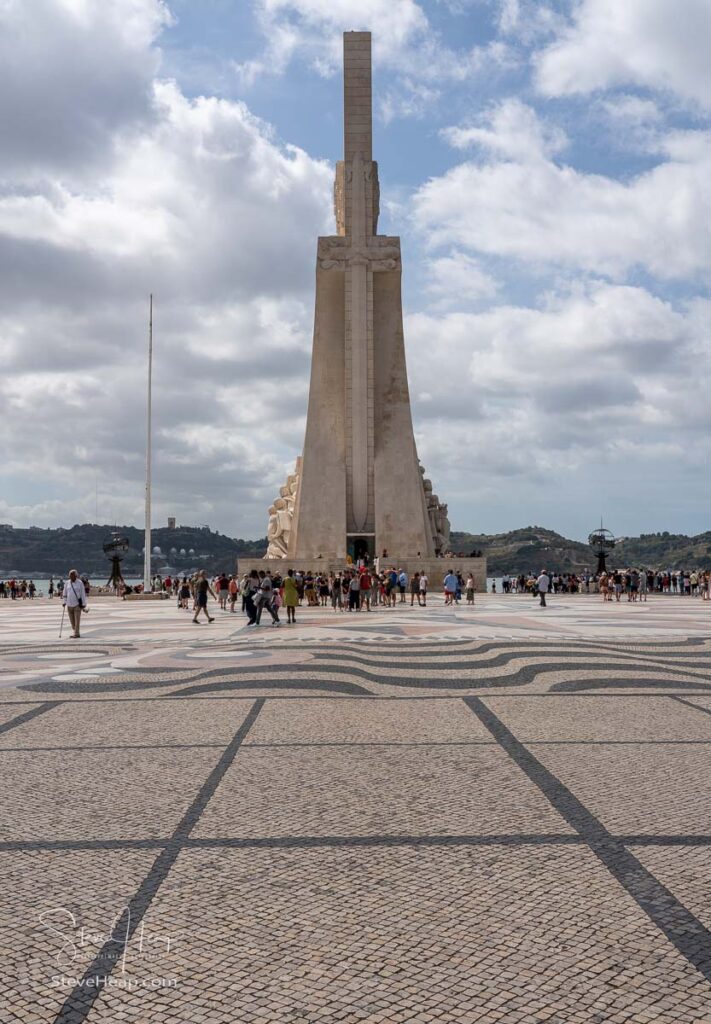
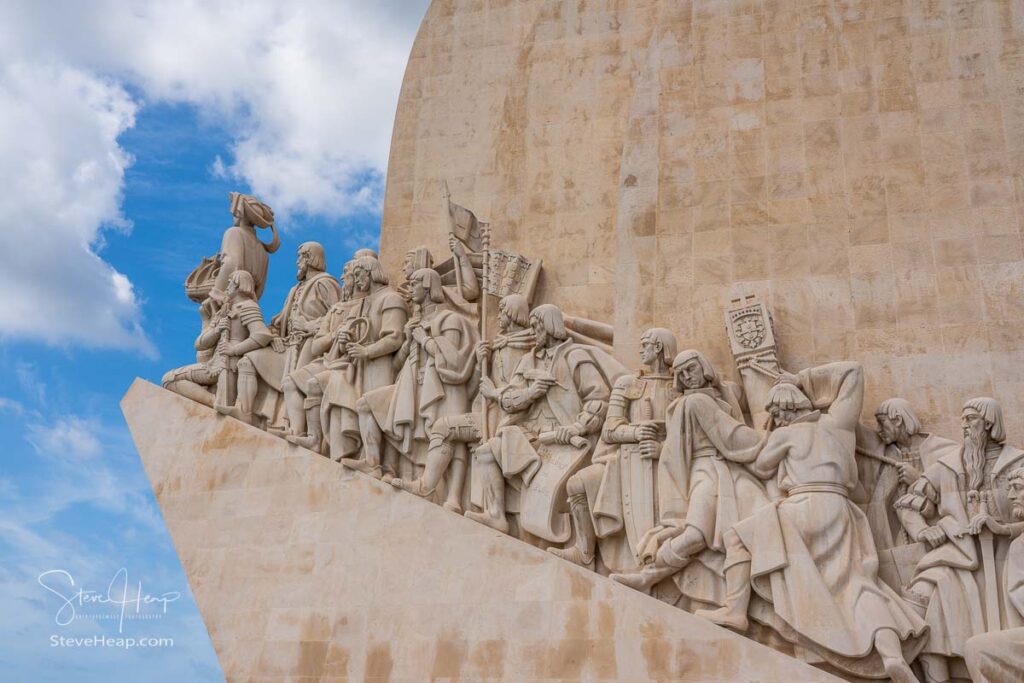
Our Viking tour continued around the city until we reached the Eduardo VII park with a magnificent view over the gardens and down to the sea:
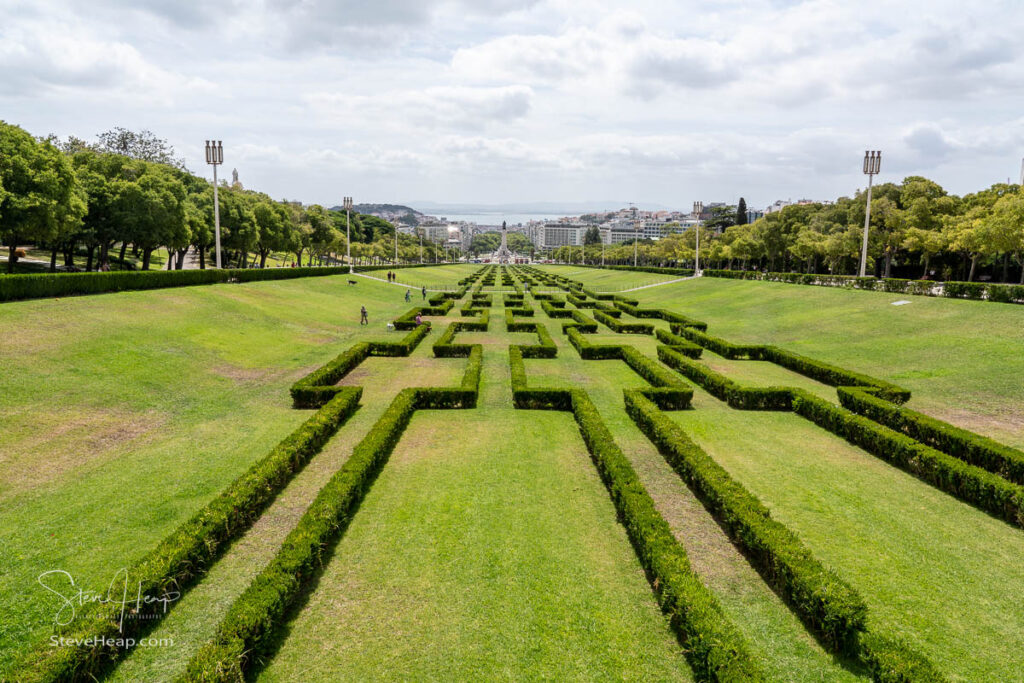
This is also the site of the pretty unusual monument and fountain created to commemorate the Carnation Revolution of 25 April 1974 when a group of military officers overthrew the authoritarian government and establish the Portuguese transition to democracy and the subsequent changes to Portugal’s overseas colonies:
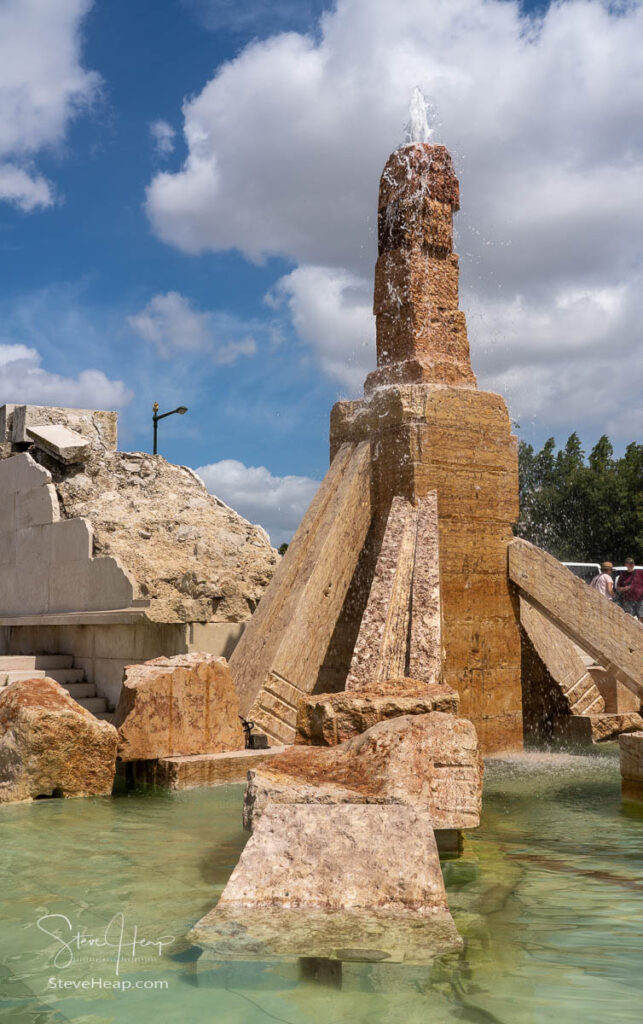
The tour ended back at our hotel (which is on the right in that picture of the gardens on the main street leading to the waterfront.
I decided that there was more life left in me and took a taxi to the Alfama District planning to walk more of this attractive city. This wasn’t actually my taxi but these little Tuk Tuk rickshaws were all over the place helping tourists move from one area to another. Quite chaotic at times:
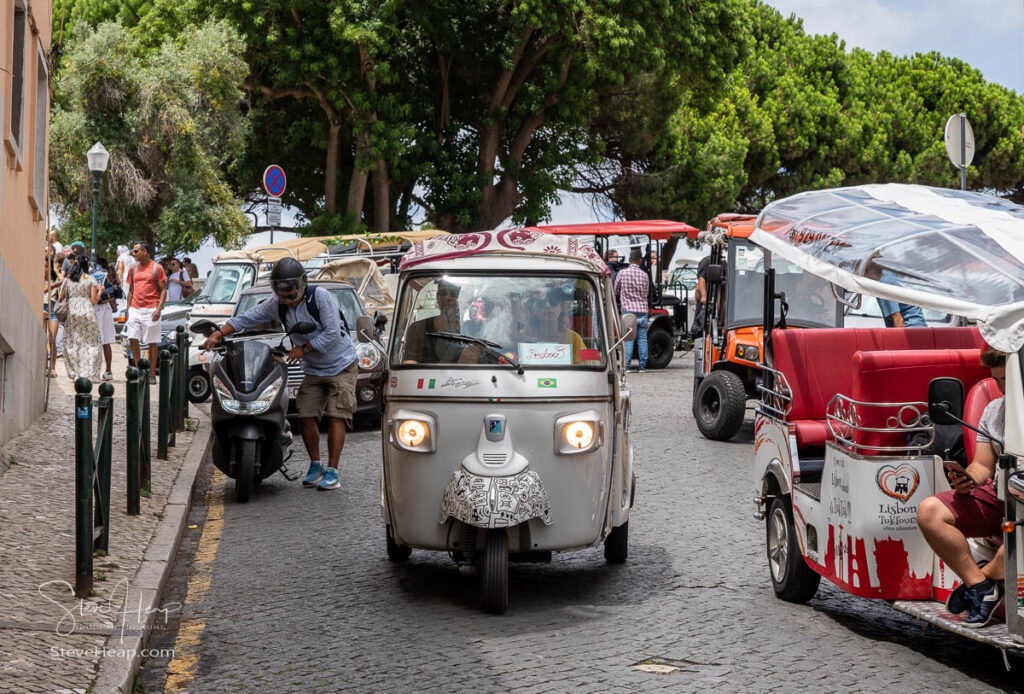
The Miradouro, or overlooks, seem to be all over this hilly city and my plan was to start at the top and wander through the streets down towards the waterfront:
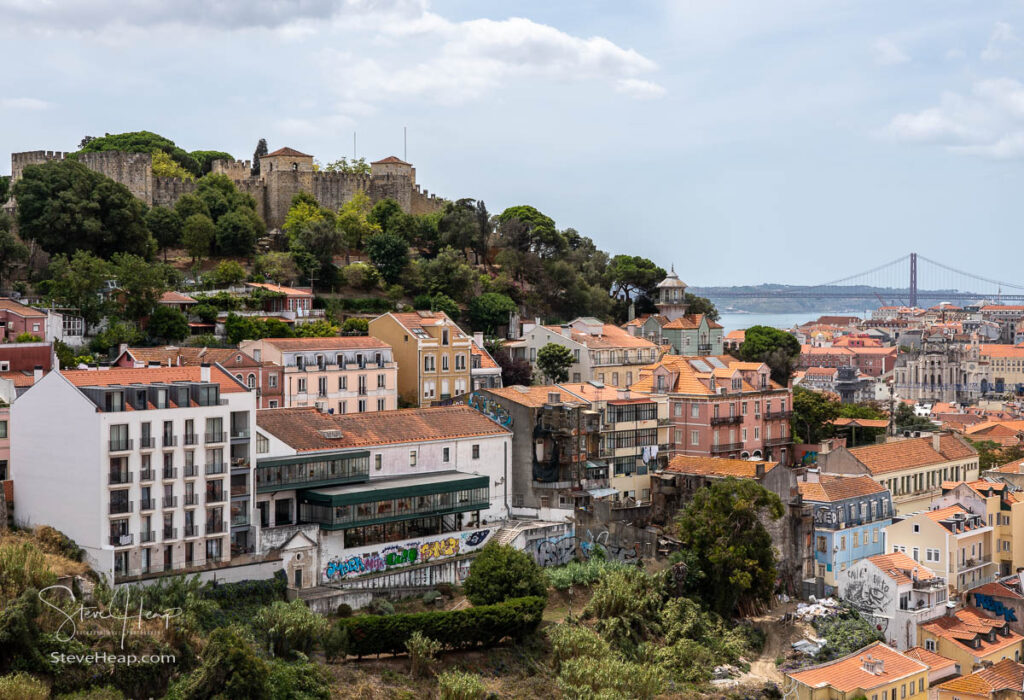
Somewhere along the way, I decided that the castle that you see on the hilltops would be worth a visit and so there did turn out to be as much uphill as down! One area of the city that deserved a visit was also the street markets around the National Pantheon in the Santa Clara district. This was a mix of antiques and artisan handiwork plus some residents selling off their belongings on blankets laid out on the sidewalk – so quite depressing as well as interesting.
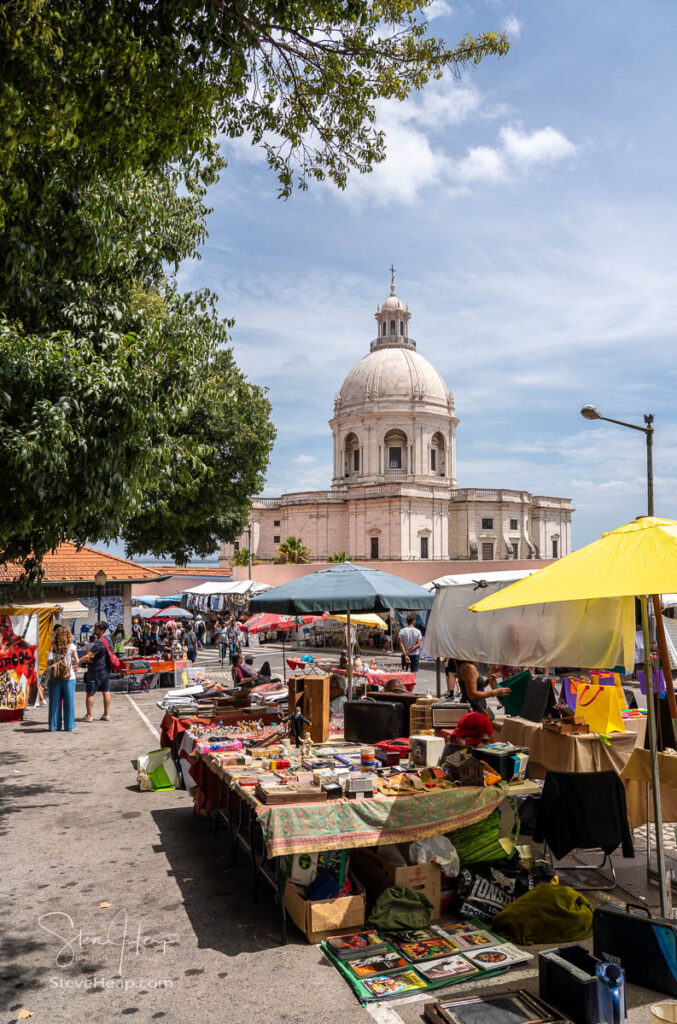
The Pantheon is well worth a visit, but the gardens and small courtyard of the Sao Vicente de Fora church gave a lovely respite from the crowds and the heat of an August day in Lisbon:
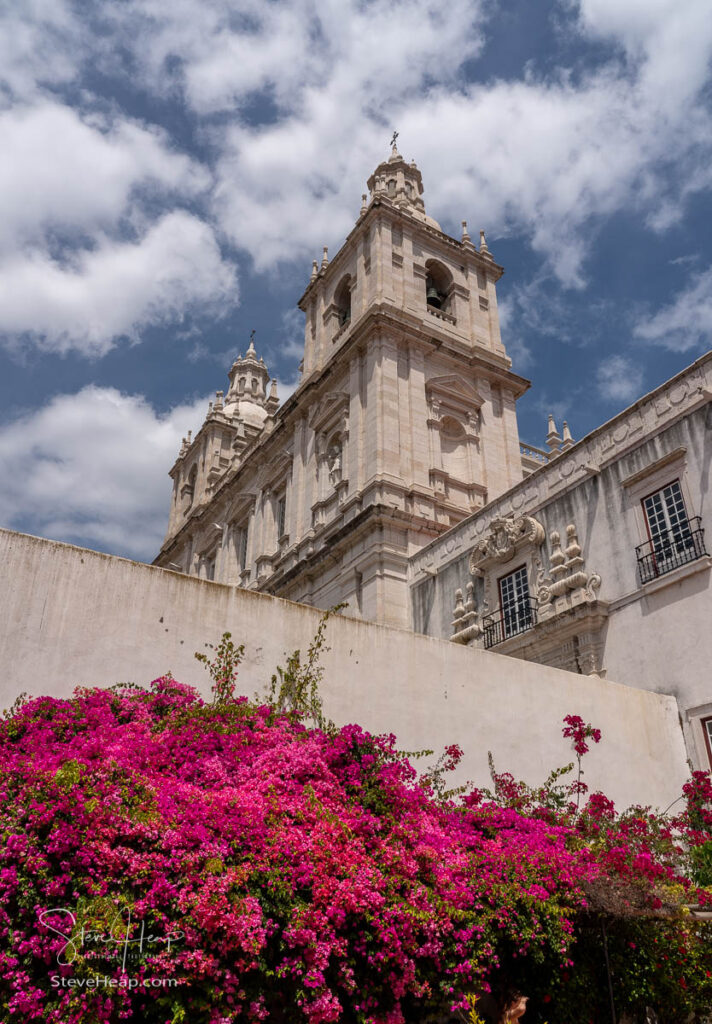
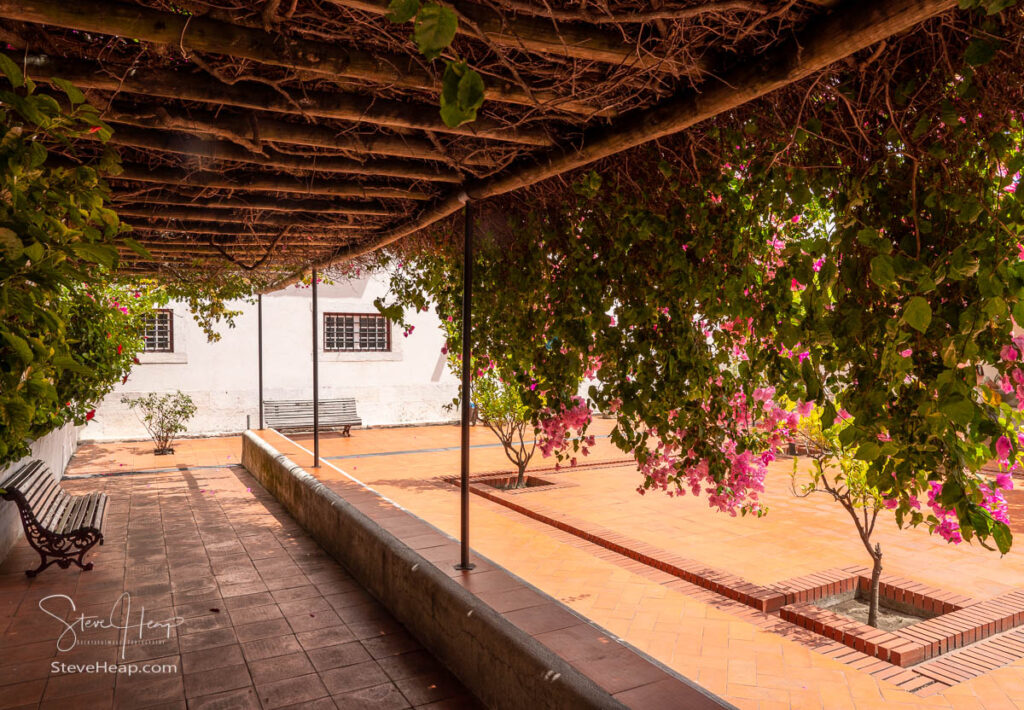
Well rested, I hoisted my camera backpack to my shoulders and took the street leading to the Sao Jorge castle. This historic site has fortifications that date from the 2nd Century BC and, once again, gives great views over the city rooftops to the distant water.
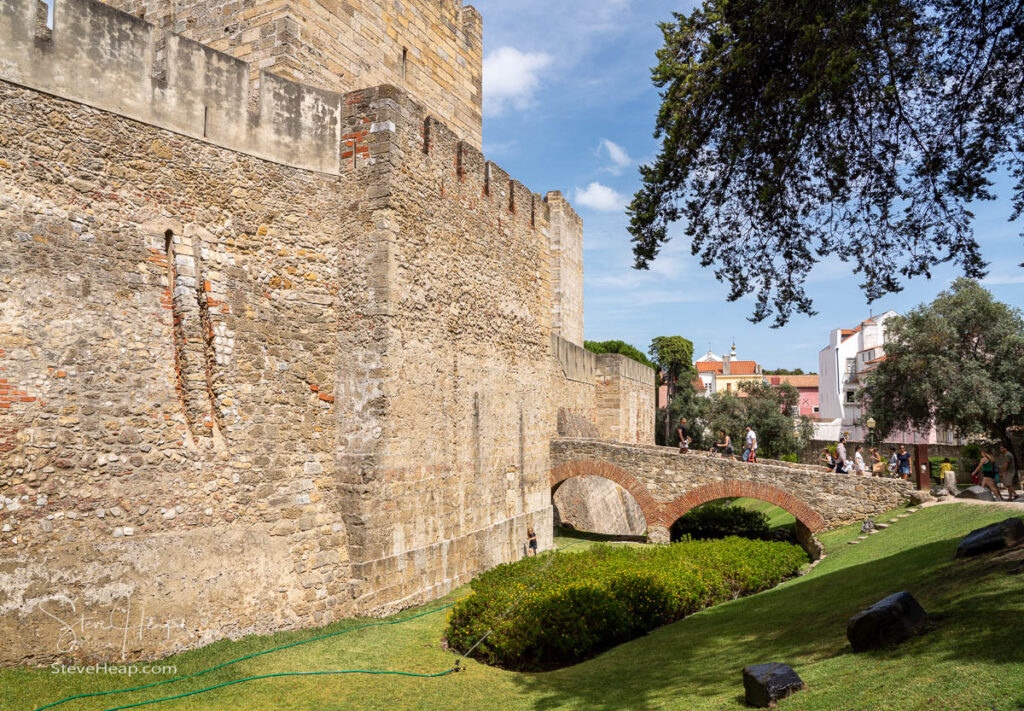
Around this time, I decided that more than a rest in a garden was needed and found a small street-side restaurant for a very welcome beer and a lovely cheesy lunch:
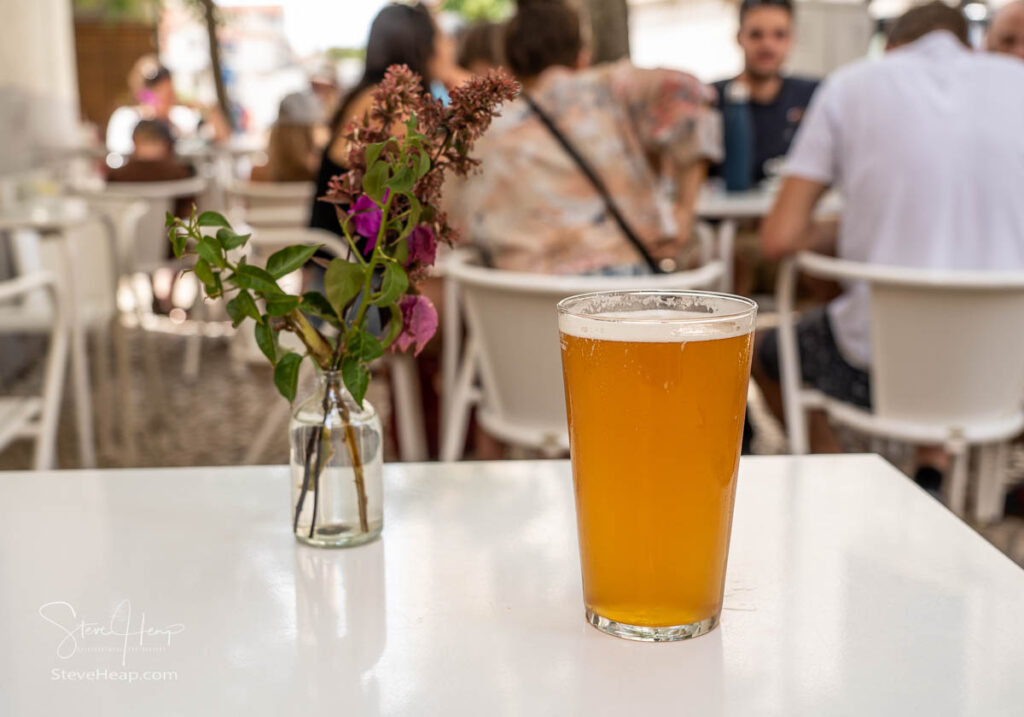
I was flagging though and decided to head downhill through the narrow streets – watching for the famous trams on the historic Route 28 as they climbed the steep slopes.
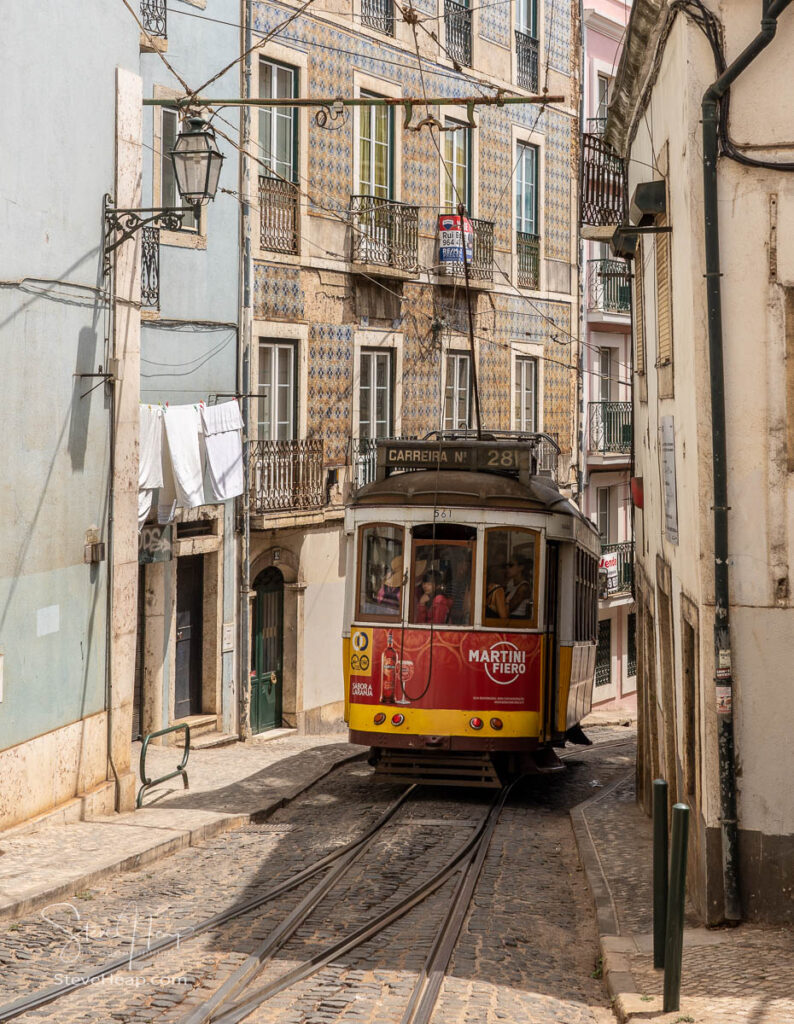
Finally, I reached the main square, which is both enormous and impressive. Far too big to capture in one photograph, so here is a very wide panorama of the entire square:

And a detail shot of the archway that leads into the downtown area and back to my hotel:
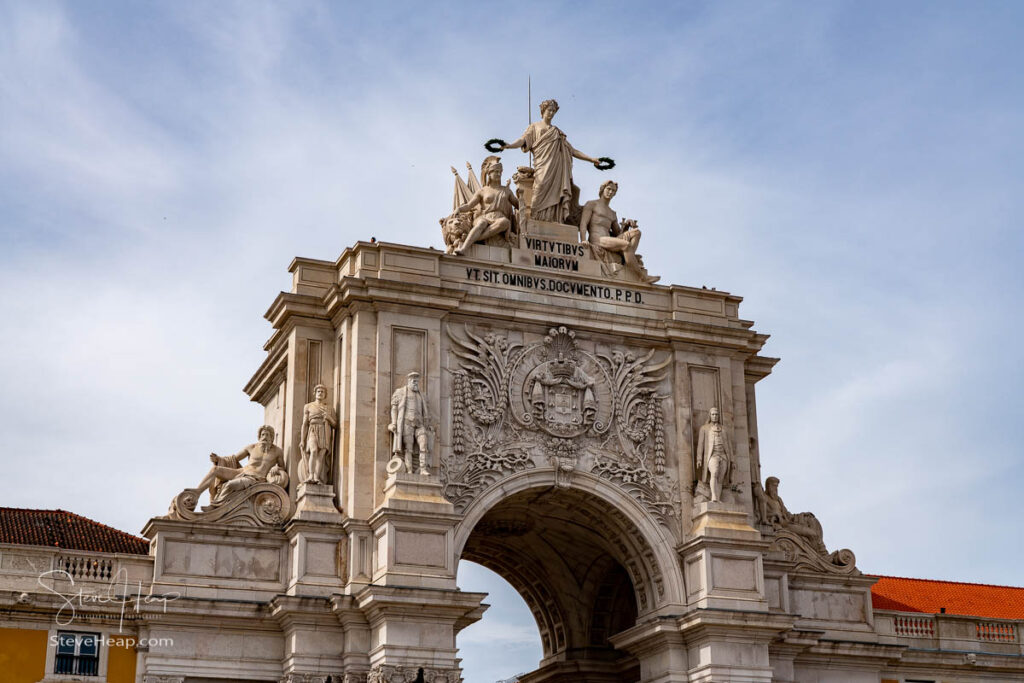
By this point, my legs were turning to jelly and even though the hotel was only about half a mile away, that was too much, and I called for a taxi for the last section. I thoroughly enjoyed this wander through the old street and districts of Lisbon and ready to start the cruise proper with the coach ride to Porto via the old University town of Coimbra. I’ve also written a much shorter summary about the cruise on the river itself, and that article of the cruise itself can be found here.
I’ve now written all the articles about each day on the cruise, you can find direct links to them here:
Porto to Pinhao on the River Douro
Barca D’Alva to Pinhao and a picnic on the hillside
Lamego and the final leg to Porto
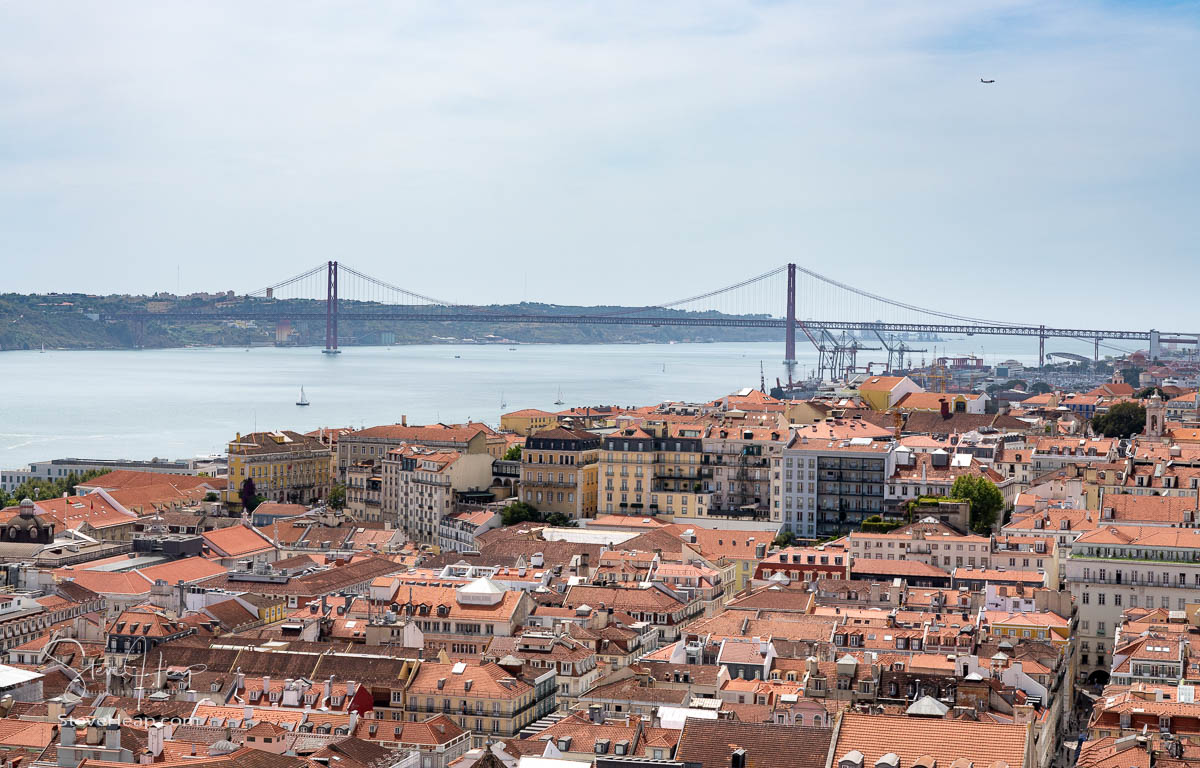

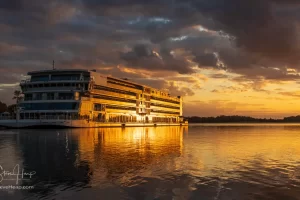

Jim Cook
10 Mar 2024Great photos! Enjoyed your descriptions as well. You have really captured the history as well as the vibrancy of the city as it exists today!!
Steve Heap
10 Mar 2024Thanks Jim – lovely country! We really enjoyed our time there.
Joan Fitzsimmons
11 Mar 2024If you want to visit my Viking tours, go to jonie hits the road on fb. Currently touching land after 4 days at sea on the Jupiter.
Steve Heap
11 Mar 2024It’s a little strange that it is a private group. I never post anything until I return home to avoid those issues.